… et laissez-nous aimer les vivants
[English will follow]
Madeleine Parent n’aurait pu choisir une meilleure devise pour son album de finissants: «Abandonnez ce qui a péri il y a longtemps, et laissez-nous aimer les vivants». Une devise qui devait s’avérer prophétique, une ligne de conduite qu’elle suivra toute sa vie. Qui aurait pu imaginer que cette jeune diplômée d’un baccalauréat ès arts de l’Université McGill allait devenir, à peine 7 ans plus tard, l’ennemie jurée du premier ministre Maurice Duplessis?
Il y a 70 ans, un procès pour conspiration séditieuse
C’est durant ses années d’études à McGill (1936-1940) que Madeleine Parent s’initie aux mouvements de revendications sociales et de défense des droits des familles ouvrières. Elle lutte alors activement au sein de l’Assemblée des étudiants canadiens pour la création de bourses d’études gratuites destinées aux enfants de familles ouvrières. Au sortir de ses études, elle rejoint le mouvement syndical et devient, en 1942, secrétaire du comité d’organisation du Conseil des métiers et du travail de Montréal. L’année suivante, elle joue un rôle clé dans la syndicalisation des Ouvriers unis du textile d’Amérique (OUTA) au Québec.
Son implication dans la défense des droits des ouvriers et ouvrières du textile s’enracine dans un contexte extrêmement difficile. Le gouvernement en place, celui de Duplessis, mène alors une furieuse répression contre les organisations syndicales et leurs chefs, n’hésitant pas à recourir à la force et à la propagande pour dompter ces «communistes». Si de s’opposer à Maurice Duplessis, à la police provinciale, au «Trust du textile» (comme on le surnommait à l’époque), au clergé et aux médias n’était pas un travail de tout repos, celui des ouvriers et des ouvrières de l’industrie du textile n’était guère mieux. Les conditions de ces travailleurs étaient les pires de toute l’industrie manufacturière. Alors que la semaine de travail normale est de 48 heures, elle avoisine les 60 heures pour les employés du textile pour un salaire moyen se situant entre 11$ et 15$ par semaine. La moyenne de l’industrie manufacturière est alors de 20$ par semaine. Ces longues heures de travail à l’usine ne se passent pas dans les meilleures conditions. La chaleur y est excessive, atteignant régulièrement les 35 degrés Celsius, sans parler du haut taux d’humidité, du bruit infernal des machines, de la pollution de l’air et du manque d’installations sanitaires.
C’est dans ce contexte qu’en 1946, suite au déclenchement d’une grève des ouvriers de la
Dominion Textile à Valleyfield et Montréal que l’action de Madeleine Parent et des autres chefs syndicaux suscite l’ire du gouvernement de Maurice Duplessis. Ce dernier fera alors tout en son pouvoir pour y mettre un terme. Arrêtés à plusieurs reprises au cours de différentes manifestations syndicales, Madeleine Parent et les autres chefs syndicaux sont finalement accusés de conspiration séditieuse, suite au déclenchement d’une grève des 800 ouvriers de la compagnie Ayers, à Lachute, en avril 1947. C’est alors que débute le procès le plus long des annales judiciaires du Québec. Cette saga judiciaire s’éternisera pendant près de huit ans. Elle fut marquée par le décès du greffier avant que ses notes ne puissent être retranscrites ordonnant conséquemment la tenue d’un second procès. Celui-ci prit fin en 1955, après seulement trente minutes, faute de preuves de la poursuite, et se solda par l’acquittement de tous les accusés.

Madeleine Parent, Azellus Beaucage et Kent Rowley dans le bureau du Shérif à la prison de St-Jérôme, en 1947, lors de leur arrestation.

Azellus Beaucage, Madeleine Parent et leurs avocats lors du procès pour conspiration séditieuse au palais de Justice de St-Jérôme, 6 février 1948.
Décédée en 2012, Madeleine Parent a fait don de ses archives au Service des archives de l’Université McGill en 2009.
Pour en apprendre davantage
Découvrez le fonds d’archives de Madeleine Parent (MG4269) via le catalogue des archives de l’Université McGill.
Consultez la collection numérisée des livres de finissants de l’Université McGill, de 1898 à 2000: McGill Yearbooks
Écoutez la chronique urbaine d’Hugo Lavoie consacrée à Madeleine Parent, à l’émission du matin de la radio de Radio-Canada: Gravel le matin.
_______________________________________________________________________
Give up what perished long ago, and let us love the living
Madeleine Parent could not have chosen a better motto for her graduation album: “Give up what perished long ago, and let us love the living.” A motto that would prove to be prophetic and a course of action she will follow all her life. Who could have imagined that this young graduate of a Bachelor of Arts degree from McGill University would become, just 7 years later, the sworn enemy of Prime Minister Maurice Duplessis?
70 years ago, a seditious conspiracy lawsuit
It was during her years of study at McGill (1936-1940) that Madeleine Parent initiated herself into the movements of social demands and the defense of the rights of working class families. She is actively fighting in the Canadian Students’ Assembly for the creation of free scholarships for working-class children. After graduation, she joined the labor movement and became, in 1942, secretary of the organizing committee of the Montreal Council of Trades and Labor. The following year, she played a key role in the unionization of the United Textile Workers of America (UTWA) in Quebec.
Her involvement in defending the rights of textile workers is rooted in an extremely difficult context. At the time, the Duplessis Government led a furious repression against the trade unions and their leaders, not hesitating to resort to the force and propaganda to tame these “communists”. While opposing Maurice Duplessis, the provincial police, the “Textile Trust” (as it was known at the time), the clergy and the media was not an easy job, working in the textile industry was hardly better. The conditions of its workers were the worst in the entire manufacturing industry. While the normal work week was 48 hours, it was around 60 hours for textile workers for an average salary of between $ 11 and $ 15 per week. The average for the manufacturing industry was $ 20 a week. These long hours of work at the plant were not spent under the best conditions, the heat was excessive, reaching regularly 35 degrees Celsius, not to mention the high humidity, the noise of the machines, the air pollution and the lack of sanitary facilities.
It was in this context that in 1946, following the outbreak of a strike of the Dominion Textile
workers in Valleyfield and Montreal, that the action of Madeleine Parent and the other union leaders aroused the ire of the government of Maurice Duplessis. The latter will then do everything in its power to put an end to it. Arrested several times during various union demonstrations, Madeleine Parent and the other union leaders will finally be accused of seditious conspiracy, following the outbreak of a strike of the 800 workers of the company Ayers, in Lachute, in April 1947. The longest trial of the judicial annals of Quebec therefore begins.
This judicial saga will drag on for almost eight years and will be marked by the death of the clerk before his notes could be transcribed hence forcing the holding of a second trial. This one will finally end in 1955, after just 30 minutes due to the absence of evidence of prosecution, and resulted in the acquittal of all accused.

Madeleine Parent, Azellus Beaucage and Kent Rowley in the Sheriff’s Office at St. Jerome Prison, 1947, at the time of their arrest.

Azellus Beaucage, Madeleine Parent and their lawyers during the seditious conspiracy lawsuit at the St. Jerome Courthouse, February 6, 1948.
Deceased in 2012, Madeleine Parent donated her archives to the McGill University Archives in 2009.
To learn more
Discover Madeleine Parent’s fonds (MG4269) in the McGill University Archival Collections Catalogue.
View McGill University’s digitized collection of graduation books, 1898-2000: McGill Yearbooks.
Listen to Hugo Lavoie’s Urban Chronicle dedicated to Madeleine Parent at Radio-Canada’s morning radio show: Gravel le matin.



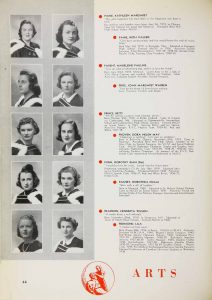
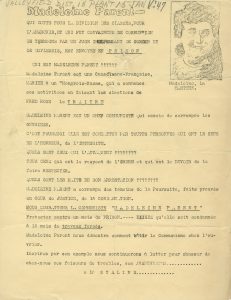

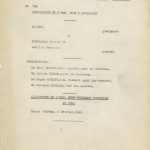
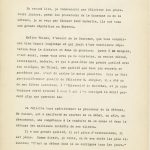
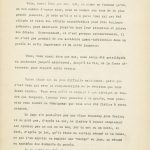
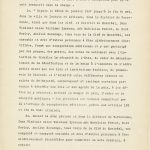
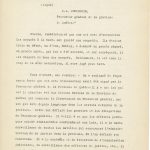
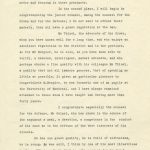
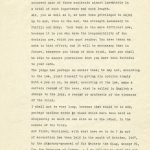
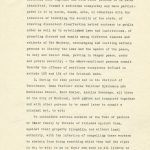










Leave a Reply
You must be logged in to post a comment.